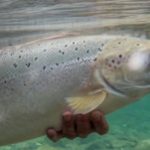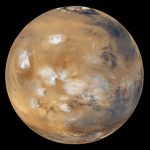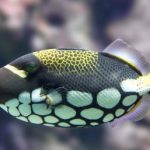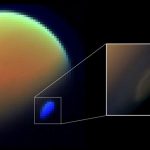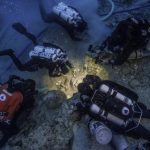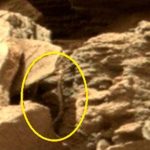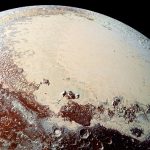Scientists from the Department of Fisheries and Oceans (DFO) have confirmed that escaped farmed salmon from aquaculture centres are breeding with wild salmon and producing offspring in many rivers in Newfoundland. “We did find evidence of successful breeding between farmed and wild salmon,” said Department of Fisheries and Oceans scientist Ian Bradbury, presenting the unpublished study at an international aquaculture ... Read More »
Science
Researchers say ‘Marsquakes’ are another clue to life on Mars
Rocks found in the Outer Hebrides might suggest that there’s life on Mars. The islands of Barra and Uist in the Outer Hebrides undergo earthquakes similar to “Marsquakes” on the red planet, and create hydrogen in the Earth’s crust. If such earthquakes are producing hydrogen on Earth, there is reason to believe Marsquakes do the same on Mars. Read More »
Pythons on loose in Quebec will not survive drop in temperature; Experts say
Two pythons are currently on the lam in Quebec and their survival is a race against Mother Nature as temperatures begin to dip in the coming weeks. One python is missing from a town north of Montreal while another went missing from southwestern Montreal nearly a month ago. Read More »
Reef Fish See Colors Humans Can Only Dream Of, says new research
Scientists at The University of Queensland have established that reef fish see colours that humans cannot. A team from Professor Justin Marshall’s Sensory Neurobiology Lab at the Queensland Brain Institute ran a series of behavioral experiments with trigger fish, in a bid to decode how they see the world. Professor Marshall said previous studies had looked into how goldfish saw ... Read More »
Moon is proto-earth’s mantle, relocated: finds new research
Measurements of an element in Earth and Moon rocks have just disproved the leading hypotheses for the origin of the Moon. Tiny differences in the segregation of the isotopes of potassium between the Moon and Earth were hidden below the detection limits of analytical techniques until recently. But in 2015, Washington University in St. Louis geochemist Kun Wang, then the ... Read More »
Researchers spot Impossible clouds on Saturn’s moon Titan
NASA’s Cassini spacecraft has discovered a strange cloud on Titan that goes against everything scientists thought they knew about the moon’s atmosphere. Years ago, when Voyager 1 spotted the first ice cloud on Titan made from a compound of carbon and nitrogen known as dicyanoacetylene (C4N2), researchers calculated that there needed to be at least 100 times more C4N2 gas ... Read More »
Researchers uncover skeleton from the ancient shipwreck
2000-year-old human skeleton found in Antikythera Shipwreck could yield first DNA from an ancient shipwreck victim. The bones were discovered on August 31 off the coast of the Greek island Antikythera, and the AFP news agency said that they were surprisingly well-preserved given their age. Currently, the individual’s identity is unknown, but that may change if DNA can be recovered ... Read More »
Cornell University Scientists Create Water-Propelled Satellite
If all goes as planned, a group of U.S. university students will have placed a satellite powered exclusively by water, into orbit around the moon in just over a year. Cislunar Explorers, a team of Cornell graduate and undergraduate students guided by Mason Peck, a former senior official at NASA and associate professor of mechanical and aerospace engineering, is attempting ... Read More »
Waterloo scientists create world’s smallest Canadian flag “Video”
The University of Waterloo has been recognized by Guinness World Records. The university’s Institute for Quantum Computing has created the world’s smallest national flag. GUINNESS WORLD RECORDS™ granted the inaugural award for smallest national flag to the Institute for Quantum Computing (IQC) at Waterloo for the flag measuring 1.178 micrometres in length. It is invisible without the aid of an ... Read More »
Snake spotted in NASA Mars photo feeds growing conspiracy theory (Picture)
Did NASA’s Curiosity Rover capture the image of a huge snake on #Mars? As #Mars Curiosity Rover continues its expedition on the planet Mars it sends back images to NASA and these images are posted online for all to see. The snake-like rock formation is one of hundreds of “discoveries” made every year by UFO enthusiasts. This time, however, the ... Read More »
Researchers just figured out how Pluto got its heart
Pluto’s huge heart is perhaps the most distinctive feature glimpsed by the New Horizons spacecraft during its flyby last year. Despite being surrounded by a mottled terrain, this 1,000 mile region, known as Tombaugh Regio, is featureless, which, as NASA previously remarked, could be a sign of “ongoing geological processes.” Tanguy Bertrand and François Forget from Sorbonne University in France ... Read More »
 Canada Journal – News of the World Articles and videos to bring you the biggest Canadian news stories from across the country every day
Canada Journal – News of the World Articles and videos to bring you the biggest Canadian news stories from across the country every day
